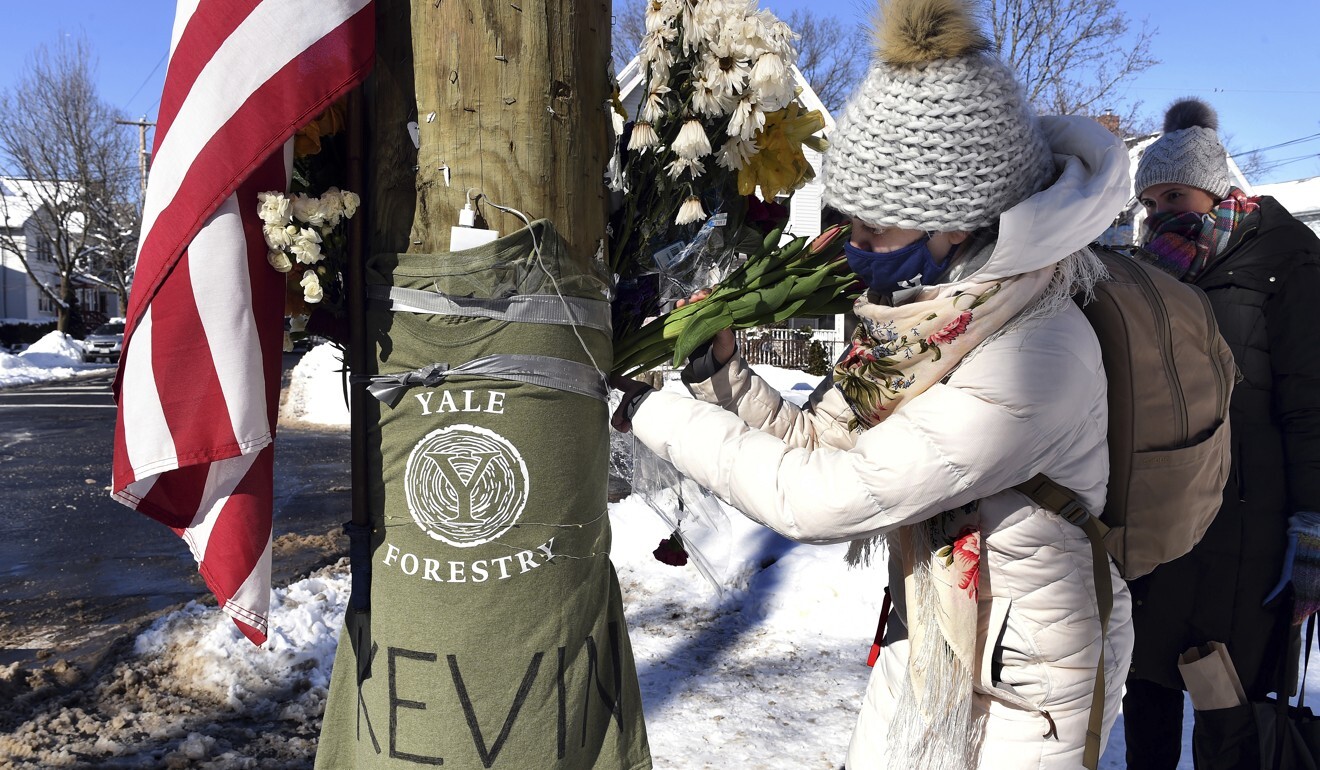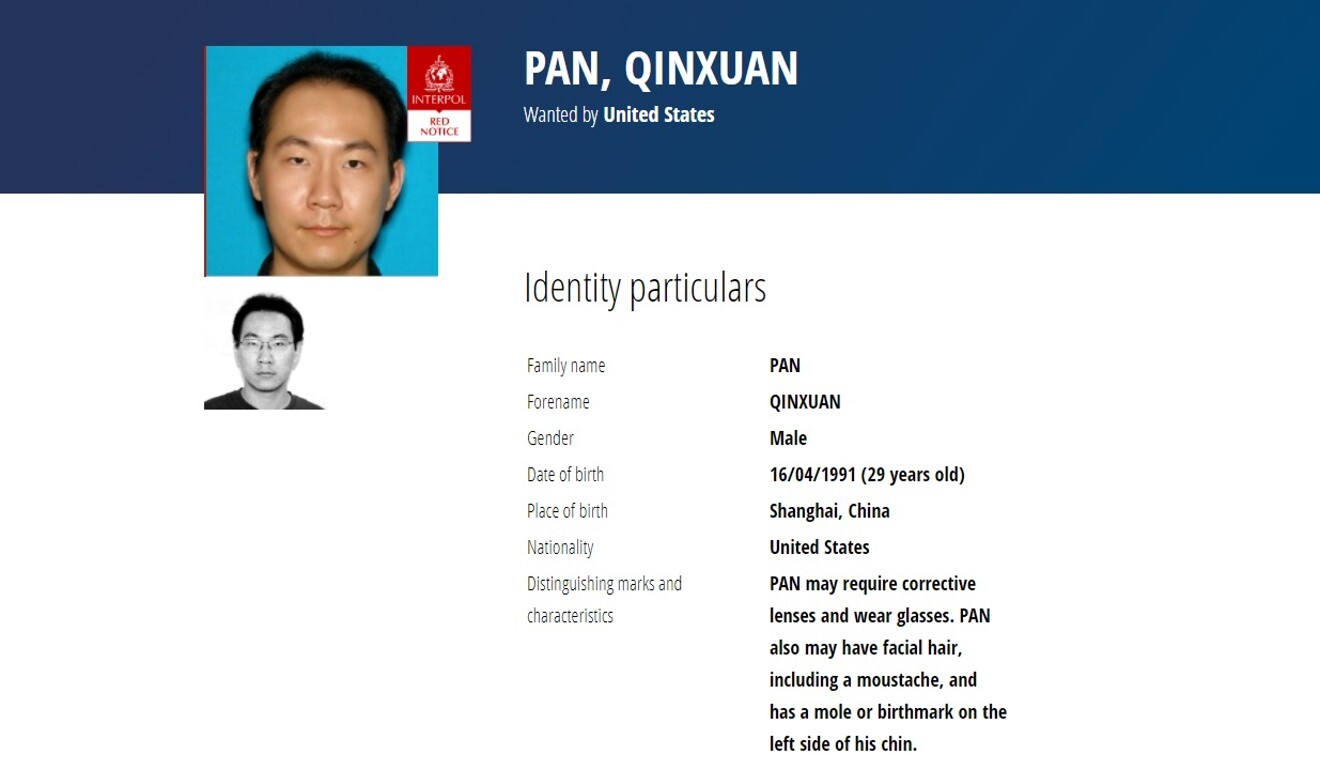
Court mulls if US$20 million bail for Yale murder suspect Qinxuan Pan is too high
- The former MIT researcher is accused of killing graduate student Kevin Jiang, then eluding authorities for three months
- Prosecutors initially asked for bail to be set at US$50 million, saying Pan’s family is wealthy and there was substantial risk that he would flee
The Connecticut Supreme Court on Wednesday grappled with whether a US$20 million bond set for a former researcher at the Massachusetts Institute of Technology accused of killing a Yale graduate student is unconstitutionally high and how state judges should go about setting bail amounts.
Justices heard just under an hour of arguments by a lawyer for Qinxuan Pan and a state prosecutor. The court did not issue an immediate decision.
Pan, 30, is charged with murder in the shooting death of Kevin Jiang on a New Haven street on February 6. He eluded authorities for three months before being arrested in Alabama with US$19,000 in cash, his father’s passport and several cellphones, police said.
Jiang, 26, an Army veteran who grew up in Chicago, was a graduate student at Yale’s School of the Environment. The motive for his killing remains unclear. Pan knew Jiang’s fiancée from when they both attended MIT, but she told police they were just friends, according to court documents.

Prosecutors initially asked for bail to be set at US$50 million, saying Pan’s family is wealthy and there was substantial risk that he would flee if released on bond. A lower court judge ruled Pan was a flight risk and a potential danger to himself and others, and set the US$20 million bail – prompting Pan’s appeal to the Supreme Court.
Pan’s lawyer, Norman Pattis, told justices on Wednesday that the bail was unconstitutionally high and there was no evidence presented of the extent of the assets of Pan’s family, only claims by a prosecutor.
“What we’ve got now is bond set with the moral ethos of the used car lot salesman,” Pattis said. “Let’s just get this guy out of here. It’s Yale. The world is watching. Twenty million will do. You don’t want a bond? OK. Bam. Sold for US$20 million. But what got sold wasn’t just the bond, but the presumption of innocence and my client’s rights.”
Pattis said prosecutors’ claims about Pan’s wealth are wrong. He proposed lowering the bail to US$5 million and allowing Pan to post 10 per cent of it.
Bail set at US$20 million for man charged in Yale graduate killing
“He’s a PhD candidate at MIT living on a US$30,000-a year stipend,” he said.
Pattis said Pan’s bail was the second-highest in recent state memory, after the US$25 million set for alleged Hartford drug dealer Donald Raynor. Raynor was sentenced to life in prison in 2015 for a drive-by killing and denied involvement in several other killings alleged by police. His murder conviction was overturned in December and he remains detained awaiting a new trial.
Prosecutor Timothy Sugrue told the Supreme Court that the state still believes that Pan would flee if released on bail and no bail conditions would stop him from going on the run.
Justice Steven Ecker said he was perplexed there was no evidence presented about Pan’s financial resources before Judge Gerald Harmon in New Haven set the US$20 million bail.

“It just seems like they’re sort of pulling a number out of the air,” he said.
The state constitution bans “excessive” bail and says defendants have the right to be released on bail “upon sufficient security”, but those terms are open to interpretation.
Pattis said Pan’s case offers the Supreme Court a chance to set clear rules for setting bail in criminal cases.
Justice Andrew McDonald said there were possible due process problems with how state judges currently set bail and they appear to be getting worse. He said a decade ago, 24 per cent of the state’s prison population comprised unsentenced defendants, compared with 42 per cent today. He said most unsentenced prisoners who are detained cannot afford to post their bails.

